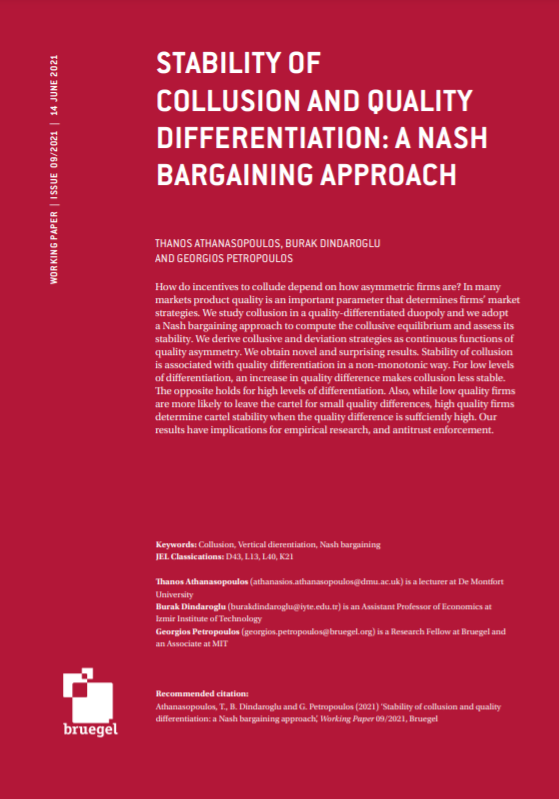Working Paper
Stability of collusion and quality differentiation: a Nash bargaining approach
How do incentives to collude depend on how asymmetric firms are? For low levels of differentiation, an increase in quality difference makes collusion less stable. The opposite holds for high levels of differentiation.
How do incentives to collude depend on how asymmetric firms are? In many markets, product quality is an important parameter that determines firms’ market strategies. We study collusion in a quality-differentiated duopoly and we adopt a Nash bargaining approach to compute the collusive equilibrium and assess its stability. We derive collusive and deviation strategies as continuous functions of quality asymmetry. We obtain novel and surprising results. Stability of collusion is associated with quality differentiation in a non-monotonic way. For low levels of differentiation, an increase in quality difference makes collusion less stable. The opposite holds for high levels of differentiation. Also, while low quality firms are more likely to leave the cartel for small quality differences, high quality firms determine cartel stability when the quality difference is sufficiently high. Our results have implications for empirical research, and antitrust enforcement.
Recommended citation:
Athanasopoulos, T., B. Dindaroglu and G. Petropoulos (2021) ‘Stability of collusion and quality differentiation: a Nash bargaining approach’, Working Paper 09/2021, Bruegel













